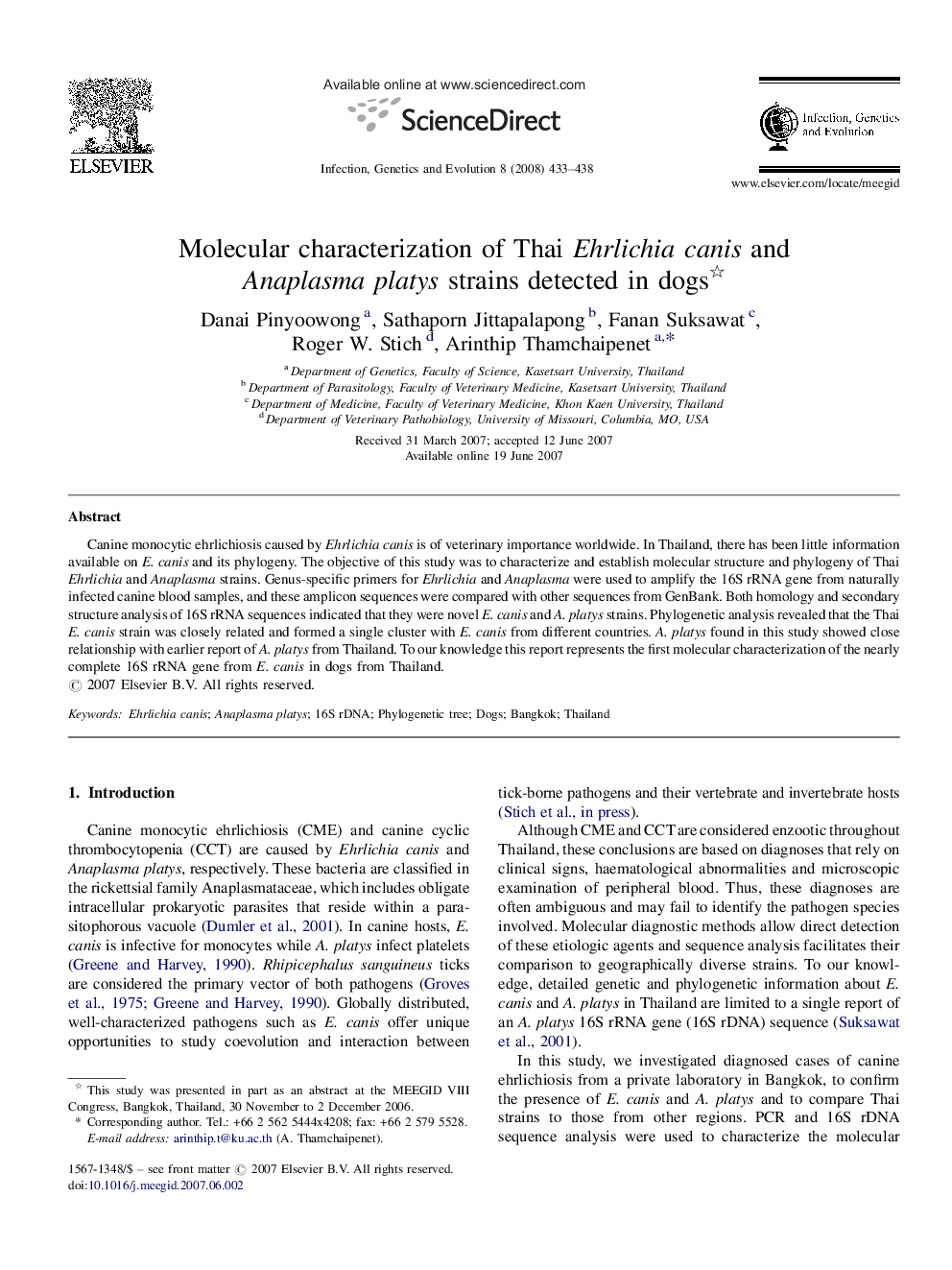| Article ID | Journal | Published Year | Pages | File Type |
|---|---|---|---|---|
| 2823399 | Infection, Genetics and Evolution | 2008 | 6 Pages |
Canine monocytic ehrlichiosis caused by Ehrlichia canis is of veterinary importance worldwide. In Thailand, there has been little information available on E. canis and its phylogeny. The objective of this study was to characterize and establish molecular structure and phylogeny of Thai Ehrlichia and Anaplasma strains. Genus-specific primers for Ehrlichia and Anaplasma were used to amplify the 16S rRNA gene from naturally infected canine blood samples, and these amplicon sequences were compared with other sequences from GenBank. Both homology and secondary structure analysis of 16S rRNA sequences indicated that they were novel E. canis and A. platys strains. Phylogenetic analysis revealed that the Thai E. canis strain was closely related and formed a single cluster with E. canis from different countries. A. platys found in this study showed close relationship with earlier report of A. platys from Thailand. To our knowledge this report represents the first molecular characterization of the nearly complete 16S rRNA gene from E. canis in dogs from Thailand.
